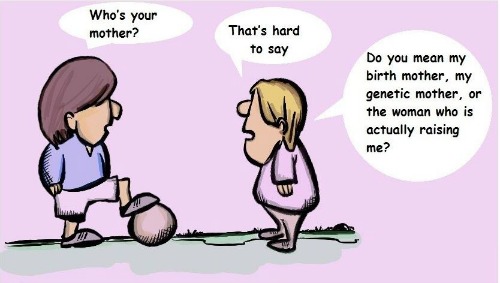When you can’t have a child of your own, is it better to adopt or use a surrogate? This is the question a gay couple ask of an upmarket
agony aunt in the New York Times magazine. The couple’s concern (and it is a concern that could just as easily apply to a straight couple) is that they would prefer to use a surrogate so that the child has a biological connection with one of them. They wonder if this is selfish.
The answer they are given is that it is no more selfish than the desire of any couple to have a child of their own. All couples have the option to adopt, the agony aunt argues, but almost every couple who can nonetheless opts to have a child that is biologically theirs.
For the ‘agony aunt’ (Kwame Anthony Appiah, who teaches philosophy at New York University) the only ethical issue is that the egg seller and the surrogate are not to be exploited.
I’ll make three observations about this advice. The first and most important is that it acknowledges the importance to would-be parents of the biological ties. In the recent referendum, we were told ‘love is all you need’. Now this gay couple are being told that the biological ties matter after all.
As Appiah tells them: “Wanting a biological connection with your child is pretty normal”.
The second observation is that Appiah is looking at this only from the point of view of the adults, not the child. He acknowledges that the biological ties are important to adults, but what about the child? In the case of any couple or individual who buy eggs and/or sperm to have a child (and this in case a surrogate mother also), the child will lose the connection to at least one biological parent. Why is that acceptable? And why is it acceptable to deliberately deprive a child of its mother or its father?
The third and final observation is this; there is a world of difference between a couple who must use third party gametes, as well as the womb of a surrogate in some cases, to have a child, and a couple who can have a child naturally. The latter involves no intrinsic ethical difficulties. The former involves plenty.
Overall, what we seeing here once more is just how adult-centred much of the thinking about third party reproduction is. Adults have a right to what they want. The rights of children are reduced to an afterthought at best.
















